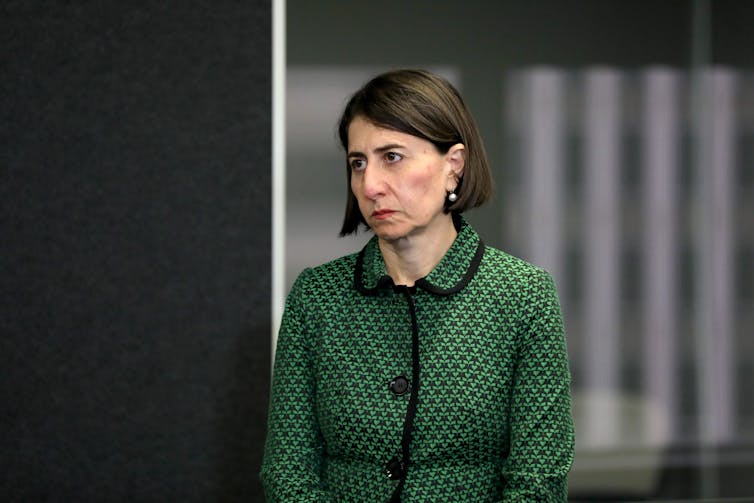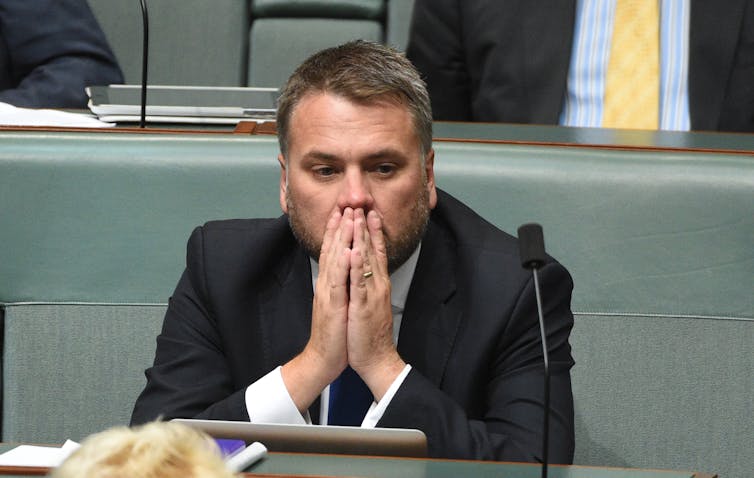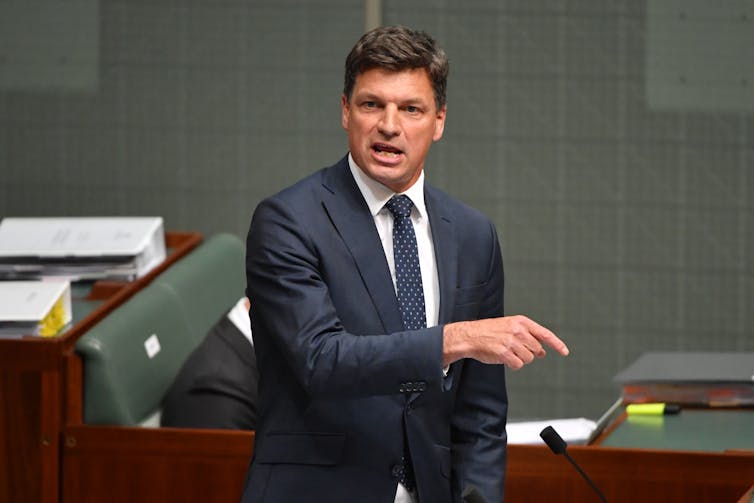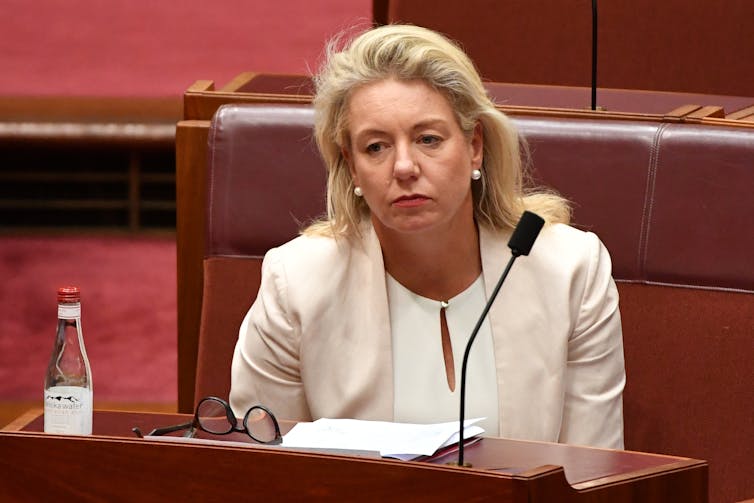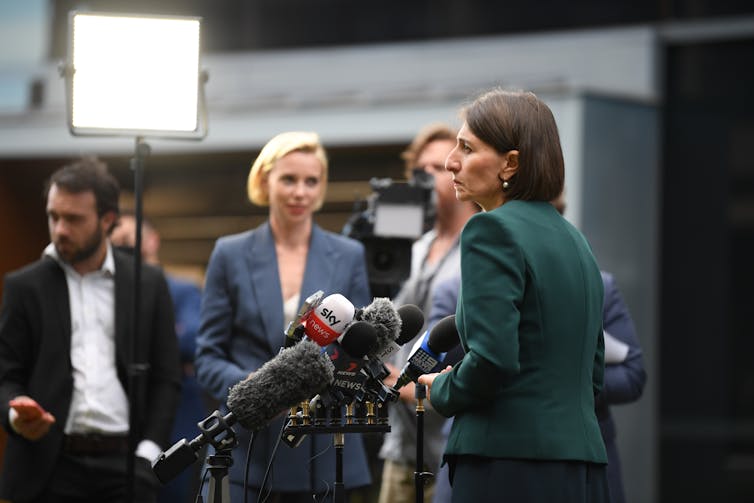Almost a year ago the Minister for Foreign Affairs Senator Payne drew attention in speeches to two matters of significance in Australia's international affairs-an audit report completed by the Department of Foreign Affairs at the request of the Prime Minister on Australia's engagement with multilateral institutions, and what the Minister described as the important role Australia played since assuming a position on the governing board in advocating for greater independence and transparency at the World Health Organisation.
Hmm, important stuff, I thought.
FOI application
Wanting to know more about both I made separate FOI applications for documents on 18 June to the Department of Foreign Affairs and Trade
A year later after tortuous drawn out processes in both cases I've got nothing to show.
DFAT's decisions have been with the Office of Australian Information Commissioner since 13 November seeking review of the knock backs received as well as a response to a complaint about the department's handling of these, and presumably other FOI applications.
The blow by blow details are in the public domain on the Right to Know website here and here.
Below is a potted summary of the pursuit of the Audit report-a tale of delay, long silences and obfuscation stretching from June to November.
It's a far cry from Parliament's intentions that the FOI act promote Australia's
representative democracy by contributing towards increasing scrutiny, discussion, comment and review of the
Government's activities, increasing
recognition that information held by the Government is to be managed for
public purposes, and is a national resource, and that functions and powers given by this
Act are to be performed and exercised, as far as possible, to facilitate and
promote public access to information, promptly and at the lowest reasonable
cost.
18 June 2020
FOI application lodged for a copy of the audit report on Australia's engagement in key
multilateral institutions mentioned and summarised in the speech by the
Minister to the National Security College on 16 June.
24 June
DFAT acknowledgement (emphasis added here and elsewhere):
"Searches are now being undertaken in relevant areas of the Department for documents relevant to your request.""You should.. expect a decision from us by 20 July 2020. The period of 30 days may be extended in certain circumstances." "..the Department issues charges for processing FOI requests." It is the Department’s policy to withhold ... the names and contact details of government
officials not in the Senior Executive Service (SES) If we don't hear from you "we will take it that you agree to that information being excluded from the scope of your request."
26 June
My response: Guidance from OAIC makes clear, the imposition of a charge is at the discretion of the agency. There is no obligation to charge. In the middle of a pandemic surely simple is better than complex. "In my submission, a charge for processing an application for one clearly
identified document is not warranted." On names, the Department's policy is inconsistent
with Guidance issued by the Australian Information Commissioner (6.154)
"When considering whether it would be unreasonable to disclose the
names of public servants, there is no basis under the FOI Act for
agencies to start from the position that the classification level of a
departmental officer determines whether his or her name would be
unreasonable to disclose."
7 July
DFAT makes no reference to either point raised and imposes a charge of $108.67 with the full amount or a deposit payable in advance.
9 July
My response notes no mention of matters raised on 26 June, and that the charges for processing the application are not broken down into how they will spend time in dealing with the application. Presumably little if any
time is involved in searching for and identifying the one document
requested.
Still arguing DFAT has a discretion not to charge and why in difficult Pandemic times not charging is likely to save time and resources of both of us, I pick up on their mention of waiving or reducing charges on financial hardship or public interest grounds. As a self funded retiree my super and savings have taken a hammering I say, but no
worse than many or most and I won’t make a special case out of that. On the public interest, what the Minister said in that speech that prompted the application made multilateral engagement a very important aspect of protecting and advancing Australia's interests. The minister said on 18 June it's about using "..Australian influence and agency to
shape a safer world, and to make us safer at home."
Access to the report is in the public interest because it will help inform the community of the Government’s conduct of this important aspect of international
affairs, contribute to debate on a matters of public importance, and enable
scrutiny of performance in the achievement of government policies and
goals.
5 August
Nothing from DFAT.
I query what is going on?
11 August
DFAT responds on charges, accepting 'this matter may be of some public interest. However I am not satisfied the giving of access to the specific document in question would be in the general public interest,nor of interest to a substantial section of the public."
Followed by a lecture:"Charges are a vital component to the FOI process that make it sustainable and appropriately balanced from a public policy perspective. Significant public resources are engaged in processing non-personal FOI requests. Processing charges are designed to ensure that the Australian community recoups a proportion of the costs of processing these types of FOI requests, given that processing such requests diverts significant resources from policy areas away from other priorities."
But yes, DFAT reduces charges by 50% to $54.33.
18 August
My reply: "Gee, I'm sorely tempted to seek a review, given the reasoning provided, but in the interests of time, I'll pay up.Your message does not mention how to go about this. Nor does the website.Please inform.Thanks."
18 August
DFAT quick to respond: "Please see attached available payment methods."
19 August
Paid full amount rather than the $20 deposit by direct debit.
27 August
DFAT asks my consent to an extension of time of 30 days to process the
request.
Searches"have been undertaken.. material falling within the request is currently under consideration" but "the
department will be unable to finalise the request within the statutory
timeframe."
No reasons given
28 August
My reply:
"I understand its a difficult time all round but even in these trying
circumstances, an additional 30 days to process the application seems
unreasonable and unwarranted.You have had this application since 18 June-70 days, 50 if we are
more generous than the FOI act and exclude weekends from the equation...The request is for access to one document, clearly described by title
and publicly referred to in that way by the Minister, so it is
reassuring that 'the searches in relation to the request have been
undertaken"and that "the material falling within the request (ie one
document) is currently under consideration." I can't see how this might
render the request complex or voluminous. I'm hoping for a decision any
day now. I do not agree to any extension."
31 August
DFAT advise they have asked OAIC for a thirty day extension.
15 September
My message to DFAT "Can you let me know where things stand?
Nothing heard from OAIC about your application so I'm thinking an extension was not granted? Deemed refusal?
Refund the charges paid?"
18 September
OAIC write to tell me the DFAT application for extension of time has not been granted-"not satisfied an extension of time is appropriate in this circumstance... The effect of this decision is that the Department is deemed to have refused your FOI request...the Department continues to have an obligation to provide a statement of reasons on the FOI request...the agency or minister cannot impose a charge for providing access, even if the applicant was earlier notified that a charge was payable (regs 7(2), (3)). Any deposit you have paid should be refunded."
29 September
Nothing heard from DFAT but my follow up query met with a same day response
"Thank you for your email and your continued patience.....complete the attached form for refund and return it at your earliest convenience. I otherwise confirm we are working to finalise this matter at the earliest opportunity."
My same day response to the response points out that the form says don't use it if you don't have an ABN. Instead use the “Statement by supplier form. I don't have an ABN.
The link doesn't take me anywhere.
A search turns up an ATO form and quite a few others. Phew-what a process."
1 October
DFAT "Apologies, statement by supplier form now attached."
2 October
Completed 'Statement by Supplier 'form sent together with a few comments to DFAT:
"Gee its hard to keep a straight face- and not weep- at the
complications in the processing of the application that have arisen to
date...I'm no expert on the GST, but how an FOI applicant entitled to get
charges back transforms into a suppler providing a supply in
the form of goods or services to your business (read explanation in
Fact Sheet) is a real mystery...
The form supplied can't easily be filled on line and comes without
a way to automatically return it to you. I took a photo. (Please don't
tell me you need the original-by snail mail!
DFAT reply same day, confirm receipt of the form and will now arrange refund of the charges.
"We otherwise confirm are working to finalise this matter at the earliest opportunity.Thank you for your continued patience."
16 October
DFAT: "In order to process the refund, we need your bank account details to
make the deposit. Grateful if you could please provide the same at your
convenience and I will continue to process the refund. Again, my apologies that the processing of this refund is again delayed. I otherwise confirm we will provide you with an outcome to your request shortly
Details sent same day.
21 October
Nothing from DFAT-my query, can you confirm receipt?
22 October
DFAT-no we didn't receive bank details.
Same day, I resend.
(Money paid into my account on 6 November)
5 November
Nothing heard from DFAT- I say time to pass to OAIC for a review of the decision DFAT hasn't made
6 November
DFAT reply:
"Unfortunately Danielle has been out of the office this week.We are continuing to work on your FOI request for you.
Regards
DFAT FOI Team"
13 November
Still nothing from DFAT.
My message:
"I think I've shown understanding in difficult times but there are limits.
An application for IC Review has been lodged today. And a heads up, I'll be lodging a complaint about the handling of the current two applications."
30 November
DFAT advise of decision on my application for the report after months of searching, considering..
The report is exempt in its entirety-cabinet document, release would damage international relations and national security.
No reasons beyond broad general assertions. All conveyed in a tad over one page. Have to wonder what those months of 'consideration' of the application involved.
3 May
The OAIC contacted me about the review application that I lodged on 13 November telling me the matter is awaiting further consideration by a review
adviser and this may
take up to 12 months and then the review adviser will review
any documentation or submissions provided by Department
in support of its decision of 30 November 2020.
.....................................
Intrigued by what this exercise might have cost the taxpayer, I made another application to DFAT on 7 December for the details of time spent and the dollar amount attributed to dealing with my request.
DFAT was at the ready for months arguing why i should pay for time spent so presumably someone somewhere was keeping tabs, but remarkably the agency says it does not hold any such documents.
.....................
Still living in hope!



